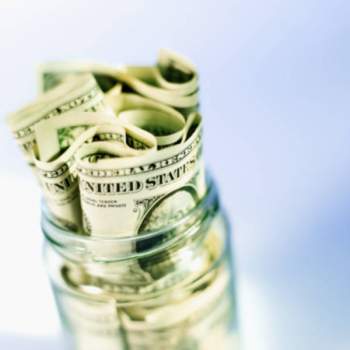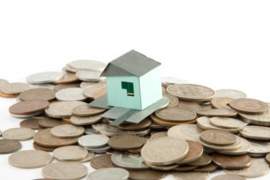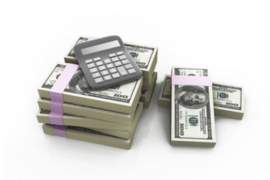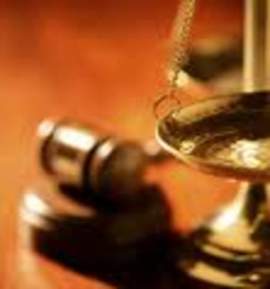
Pennsylvania Tax

Income Tax Forms
Form Pennsylvania Income Tax Return
Exemption Form
Corporate Income Tax Forms
Form PA-20S S Corporation-Partnership Information Return
Form CT-V PA Corporation Taxes Payment Voucher
Form PA-40 NRC Nonresident Consolidated Income Tax Return
Sales Tax Forms
Form REV-72 Application for Sales Tax Exemption
Form PA-1 Use Tax Return
Property Tax Forms
Form PA-1000 Property Tax or Rent Rebate Claim
Form PA-Schedule A-B
Form PA-1000 Schedule d-e-f
Primary Concerns:
Pennsylvania, statewide, has experienced problems that have plagued numerous other states, namely budget shortfalls.
Like many other states enduring the current economic climate, Pennsylvania has faced trouble trying to get financial ends to meet as tax revenue has fallen short of meeting projected costs. To address this problem, the state has approached many different elements of its taxation system item by item, as opposed to making sweeping changed to its tax systems.
One of the main measures to address this problem has been to undertake the elimination of numerous corporate tax loopholes that have prevented many corporations from paying any income tax.
At present time, more than 70% of corporations in Pennsylvania pay no income tax and all, and as a result it has driven the overall corporate income tax higher, to the point where it it the second highest rate in the country at 9.99%.
In conjunction with the closing of these loopholes will be the lowering of that corporate tax, which, it is hoped, will cause new businesses to start up in the state, soon producing more and more revenue.
The state also seeks to revise how they address sales and use taxes. Pennsylvania, at present, allows vendors to keep 1% of sales taxes for administrative costs, which, with the emergence of larger companies and retail franchises has rendered the tax obsolete.
The state is also cracking down on tax free internet sales, insisting that internet or mail vendors who sell taxed items to customers in the state pay the required taxes.
The state has also implemented a fairly novel tax amnesty program, where individuals delinquent on taxes, and amount that has increased in the current economic climate, are granted clemency and have their penalties waved if they pay to the state the original taxes that they owed the state.
Though this amnesty will only be for a limited time, it has already shown tremendous promise.
Despite these changes, Pennsylvania still has a considerable revenue shortfall, presently at around $1 billion.
To account for this, Pennsylvania will likely have to cut services and scale back costs, unless they can determine ways to increase tax revenue...which some may feel will entail increasing the state's flat 3.07% income tax. Whether the state takes this additional measure or not remains to be seen.
Income Tax:
In Pennsylvania personal income tax is levied against residents and nonresidents who draw income from within the state, estates, and trusts. Certain businesses such as business trusts, parnterships, limited liability companies, S corporations (companies the federal government determines need only single taxation of owners or shareholders), and any other businesses not taxed as corporations by the federal government are also subject to personal income tax.
The income tax is at a flat rate of 3.07%, but is levied against eight different forms of income: compensation (wages or salary), interest, dividends, net profits from a business, net gains from the sale of property, net income from rents or royalties, income generated from an estate or trusts, and any gambling winnings other than those affiliated with the Pennsylvania lottery.
The state allows deductions bases on medical or health care savings account contributions and certain tuition payments, as well as for many kinds of work related expenses that took the form of compensation. There are also a number of tax credits available to low income families, and exclusions for those suffering through medical hardship or sudden bereavement.
Some counties levy an addition personal income tax between 1 to 1.5% on top of state income taxes.
Corporate Income Tax:
Corporate income tax is generally levied against any corporations that are classified as corporations by the federal government, and has a flat corporate rate of 9.99%, which ranks as the second highest in the nation.
In addition to this, the state implements an assortment of Gross Receipts Taxes on a number of specific companies, usually determined by a millage rate, meaning on one one-thousandth of a dollar rates. Example include transportation taxes of 50 mils, or $50 for every $1000 spent, and 50 mils on telephone services.
Financial institutions are also subjected to an additional 1.25% tax on income.
Property Tax:
Pennsylvania does not levy property taxes, but commonly municipalities, counties, and school districts all levy property taxes against property. In the case of municipalities, these taxes are not allowed to be above a rate of 30 mils.
In Pennsylvania property taxes are usually collected on both real and personal property. Because of the multitude of taxes, property taxes can vary tremendously not only from county to county, but from town to town.
Pennsylvania in recent years implemented a Property Tax and Rent Rebate program for seniors and disabled residents who face the greatest burdens from property taxes.
Individual homeowners covered under these programs who make less than $8,000 can earn a maximum rebate of $650, between $8,000 and $15,000 can earn up to a $500 rebate, between $15,000 and $18,000 can earn a rebate of $300, and between $18,000 to $35,000 can earn a rebate of up t0 $250.
Renters covered under this program making less than $3,000 can make up to $650, while those making between $8,000 and $15,000 can make up to $500.
Sales Tax:
In Pennsylvania the sales tax is 6%, and is valid on most forms of tangible personal property.
Exemptions include unprepared food, prescription and nonprescription drugs, most articles of clothing, textbooks, computer services (though computers themselves are taxable), and most forms of residential heating fuels and materials, including firewood.
Allegheny County adds a 1% local tax on top of the sales tax, and Philadelphia has a 2% added tax.
Pennsylvania is also very particular about collecting use taxes, which is equivalent to the sales tax and covers the same items, that are placed on purchases made out of state, usually by the internet.
If a vendor sells a taxable item to Pennsylvania, they will be required to pay the use tax, whether they passed it on to the customer or not.
Tax Forms:
The Pennsylvania tax form for state income tax returns is called the PA-40, and it has many variations which depend on the schedule of repayment and also the nature of the taxpayer. The PA-40NR, for instance, is for nonresidents.
Corporate tax reports are labeled with a prefix of RCT, with the RCT-101 being the basic Corporate Tax report, with many others following numerically, each representing a different purpose or category.
NEXT: Rhode Island State Tax





















